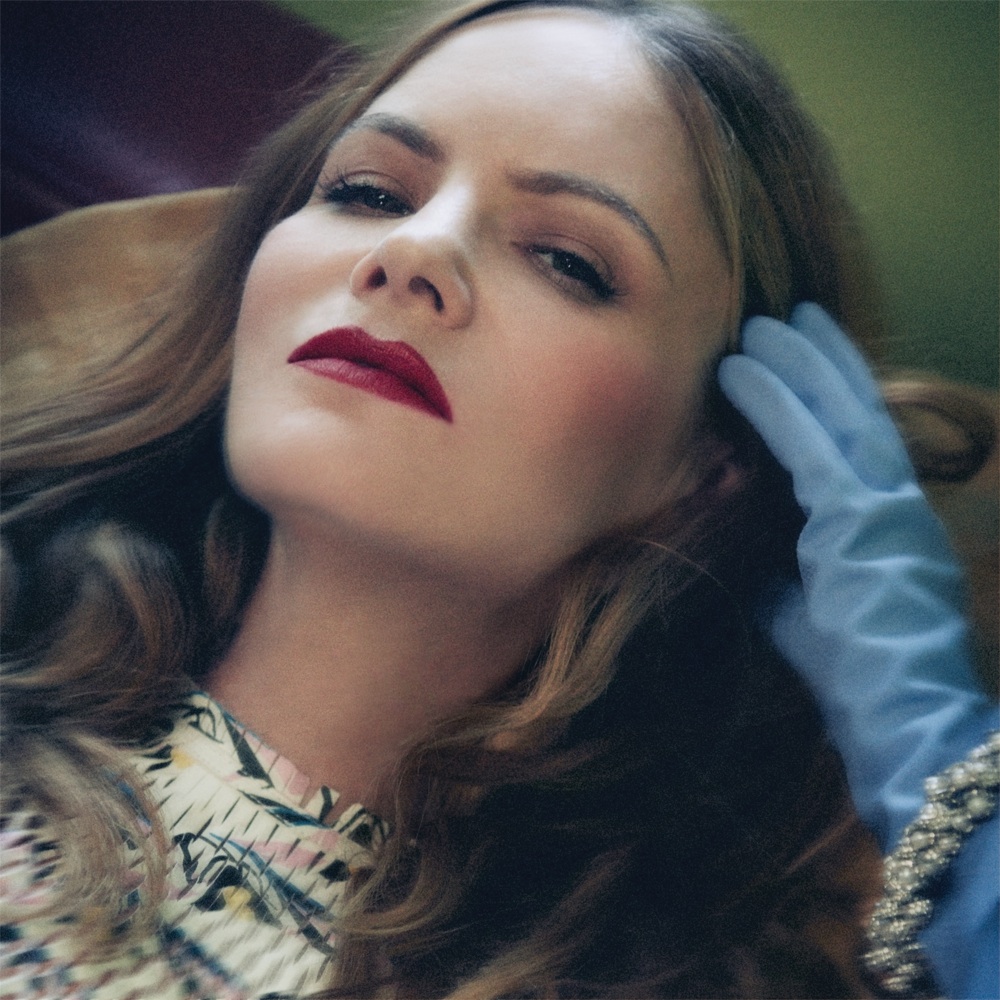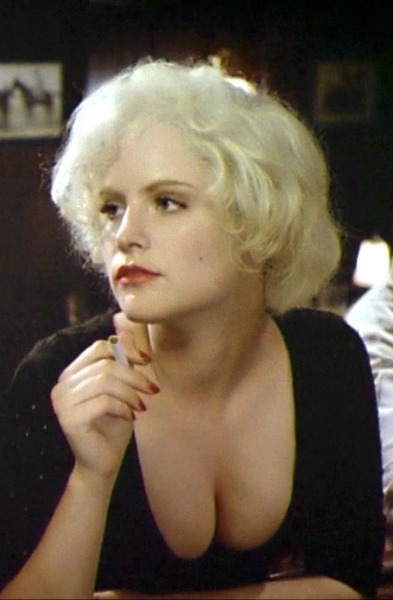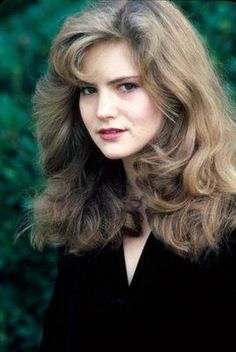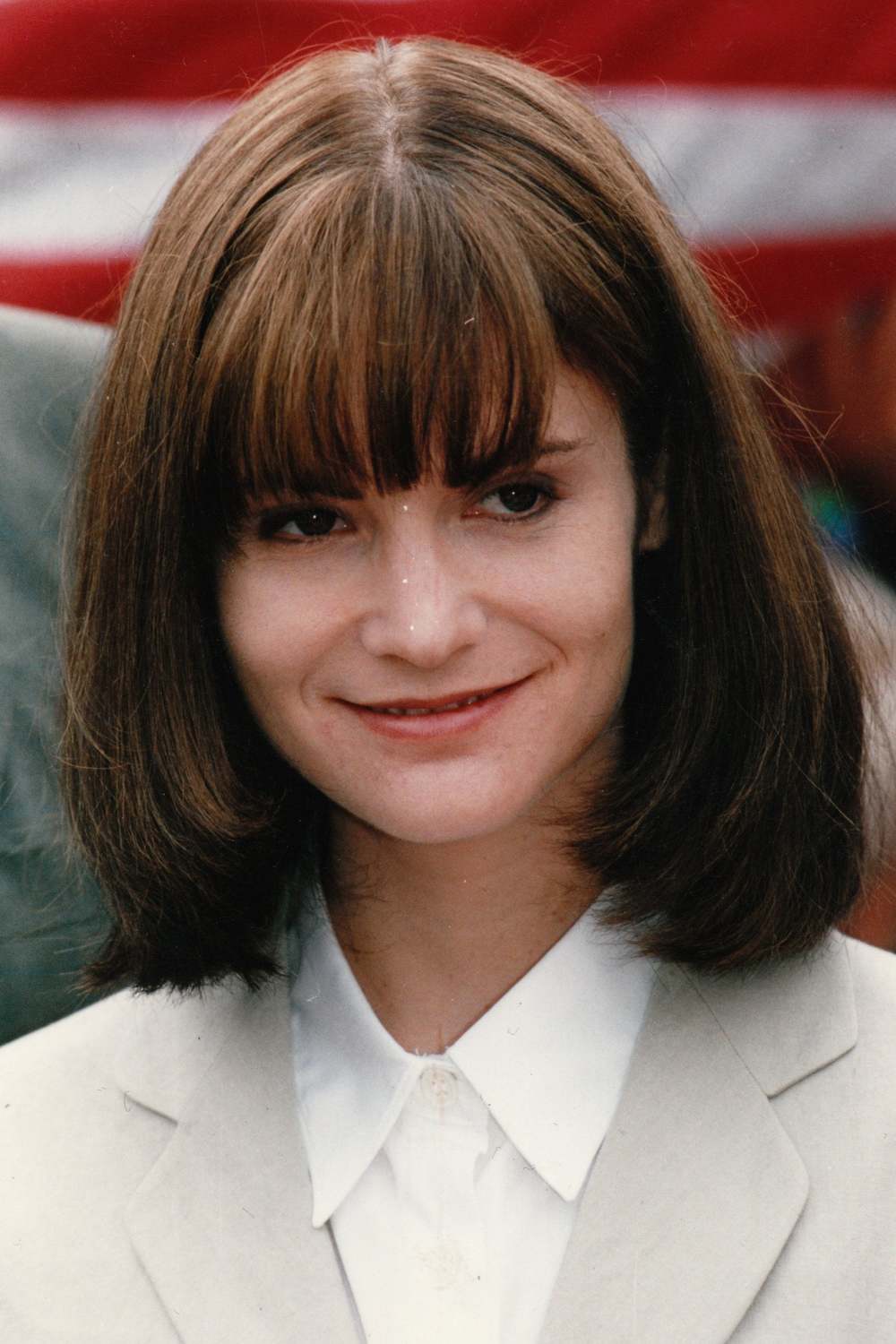 By 1982 the actress Jennifer Lee Morrow, better known to us as Jennifer Jason Leigh (the “Jason” inspired, reportedly, by the late Jason Robards), was already something of a showbiz veteran. The daughter of actor Vic Morrow and screenwriter Barbara Turner, Jennifer Jason Leigh already had a dozen acting credits to her name (including the controversial 1981 slasher EYES OF A STRANGER and the same year’s anorexia-themed TVM THE BEST LITTLE GIRL IN THE WORLD) when her breakout role in FAST TIMES AT RIDGEMONT HIGH arrived in the fateful year 1982, and unveiled one of the most talented and uninhibited actors of our age.
By 1982 the actress Jennifer Lee Morrow, better known to us as Jennifer Jason Leigh (the “Jason” inspired, reportedly, by the late Jason Robards), was already something of a showbiz veteran. The daughter of actor Vic Morrow and screenwriter Barbara Turner, Jennifer Jason Leigh already had a dozen acting credits to her name (including the controversial 1981 slasher EYES OF A STRANGER and the same year’s anorexia-themed TVM THE BEST LITTLE GIRL IN THE WORLD) when her breakout role in FAST TIMES AT RIDGEMONT HIGH arrived in the fateful year 1982, and unveiled one of the most talented and uninhibited actors of our age.
Leigh was one of several big names who got their break in FAST TIMES AT RIDGEMONT HIGH (others include Sean Penn, Phoebe Cates, Judge Reinhold, Eric Stoltz and Forest Whitaker), with her role of Stacy Hamilton, a fatally naïve young woman who tries to grow up much too quickly, being in many respects the true heart and soul of the film (she certainly embodies the title better than any of the other cast members). The adulation, alas, usually goes to Penn as Jeff Spicoli, or Cates, who in FAST TIMES has what has been deemed the most paused nude scene of all time. It was JJL, however, who provided the film’s most impacting nudity, in a scene in which she’s seen reclining fully naked after an especially humiliating sexual tryst; it’s a testament to the power of her performance that the scene is not among the most paused of all time, with viewers taking her nudity not as jerk-off fodder (although she certainly has the assets for it) but exactly as it was meant to be taken.
Fame didn’t exactly follow, although JJL, unlike so many of her contemporaries, has never seemed too interested in stardom. That’s evident in her full-bodied turn in Paul Verhoeven’s medieval set FLESH+BLOOD (1985), a film that fails to do her efforts justice, marred as it is by poor creative decisions that nudge it dangerously close to unintended comedy. Her supporting role in THE HITCHER (1986) is more memorable for the manner in which her character is dispatched (by getting tied between two trucks and pulled apart) than the character she plays, while the perverse quasi-horror misfire HEART OF MIDNIGHT (1988), which provided the young JJL with a rare starring role, is at best a good try. It wasn’t until the following decade that she truly reached her full potential, which occurred in off-Hollywood fare.
JJL was considered for quite a few iconic 1980s and 90s movie roles (upon learning that JJL was once up for BACK TO THE FUTURE, Lea Thompson stated “Jennifer Jason Leigh beat me out for about a hundred other parts, so I guess I should have gotten one”), and passed on just as many. She is, in fact, nearly as famous for the roles she’s turned down as for those she’s taken. Those spurned roles include GHOST, THE STENDHAL SYNDROME, BOOGIE NIGHTS, L.A. CONFIDENTIAL and, most famously, PRETTY WOMAN—which JJL has since dismissed as “a recruitment film for prostitutes.”
The reasoning behind her choice of roles seems straightforward enough: she won’t take accessory parts, or parts that exist (in her words) “to prove that the leading man is heterosexual.” Yet JJL has never had any trouble playing unlikeable or unflattering characters, or (it goes without saying) with disrobing onscreen. Anyone curious about what might constitute “responsible” film nudity would be well advised to check out JJL’s filmography, particularly those films that appeared in the nineties.
That decade, of course, were filled with exciting and unpredictable American actresses, including Madeleine Stowe, Winona Ryder and Reese Witherspoon (who in her pre-LEGALLY BLONDE days was—no joke—one of the most interesting performers on the scene), but Jennifer Jason Leigh was by far the wildest of the lot. The alleged “Queen of the Ravaged, Boozed Up, and Strung Out,” JJL’s eclectic choice of projects, which range from splatter films, prestige cinema, indies and even a student project (1992’s THE PROM, written and directed by her then-boyfriend Steven Shainberg), combined with an uninhibited emotional range and overall fearlessness are traits common to European rather than American performers (which explains why Euro filmmakers working in America, such as Paul Verhoeven, Uli Edel and Barbet Schroeder, like to cast her). She’s often compared to Johnny Depp, but for an American actor who can truly match her daring and commitment you’ll have to go to the top—to 1970s-era Robert De Niro.
JJL’s TAXI DRIVER and RAGING BULL equivalents, in my view, are LAST EXIT TO BROOKLYN (1989, but not released to most of the world until the following year) and MIAMI BLUES (1990). Those films were adapted from celebrated novels by, respectively, Hubert Selby, Jr. and Charles Willeford, and in both JJL pulls off the nearly unheard-of feat of improving upon the characters described on the page.
 In MIAMI BLUES she played Susie Waggoner, the airheaded prostitute girlfriend of a sociopathic ex-con (Alec Baldwin), a throwaway part in the novel that in JJL’s interpretation assumes a sad and even tragic grandeur. In LAST EXIT TO BROOKLYN she once again played a prostitute, a no-hoper known only as Tralala who was described by Selby as jaded and embittered, yet as incarnated by JJL she comes off as, essentially, a child-woman in over her head (not unlike a Brooklynese Stacy Hamilton). JJL may have been pushing thirty when the film was shot, but she has the air of a little girl parading around in grown-up outfits, which actually suits the character better than what Selby described.
In MIAMI BLUES she played Susie Waggoner, the airheaded prostitute girlfriend of a sociopathic ex-con (Alec Baldwin), a throwaway part in the novel that in JJL’s interpretation assumes a sad and even tragic grandeur. In LAST EXIT TO BROOKLYN she once again played a prostitute, a no-hoper known only as Tralala who was described by Selby as jaded and embittered, yet as incarnated by JJL she comes off as, essentially, a child-woman in over her head (not unlike a Brooklynese Stacy Hamilton). JJL may have been pushing thirty when the film was shot, but she has the air of a little girl parading around in grown-up outfits, which actually suits the character better than what Selby described.
Granted, she sports a decidedly unconvincing New York accent in LAST EXIT and a severely overwrought southern one in MIAMI BLUES. Accents are admittedly not her forte (another trait she shares with De Niro), although her performances (again like those of De Niro) are powerful enough to override that annoyance.
I’ll also single out JJL’s turn in SINGLE WHITE FEMALE (1992), in which neither she nor the filmmakers ever quite tip their hand as to whether the character she plays is a Psycho Bitch From Hell or a troubled outcast—either way she’s quite compelling. The underrated GEORGIA (1995) featured more great acting by JJL, playing a talentless punk singer looking for acceptance from her C&M star sibling (Mare Winningham). JJL also acquitted herself quite well as the troubled daughter of the title character (Kathy Bates) in DOLORES CLAIBORNE (1995), a part that wasn’t in the Stephen King source novel (which concludes with Dolores waiting for her offspring to arrive), but can be said to typify the Jennifer Jason Leigh Role.
No official designation exists, yet the Jennifer Jason Leigh Role is a real thing that hasn’t gone away. Nowadays it seems that pretty much any part played by Rooney Mara or Riley Keogh can be said to be a Jennifer Jason Leigh Role. I think both actresses were marvelous in, respectively, SIDE EFFECTS (2013) and THE LODGE (2019), but can only imagine the transcendent brilliance that might have resulted if JJL had played their roles.
There were some admitted missteps during JJL’s fertile period. Her ill-advised turn as a throwaway love interest in BACKDRAFT (1991) is a fail, conclusively demonstrating that (in yet another De Niro parallel) she’s not great in so-called “normal” roles (it’s to her what FALLING IN LOVE was to RDN). Her interpretation of Dorothy Parker in MRS. PARKER AND THE VICIOUS CIRCLE (1994) was marred by, among other things, a mumble so pronounced that much of her dialogue had to be redubbed—and it’s still only semi-comprehensible. In her defense, the entire film is a miscalculation, with writer-director Alan Rudolph creating a boisterous ensemble dramedy in the mold of his mentor (and MRS. PARKER’s producer) Robert Altman, when a more intimate portrait a la Rudolph’s earlier film REMEMBER MY NAME (1978) would have worked better.
conclusively demonstrating that (in yet another De Niro parallel) she’s not great in so-called “normal” roles (it’s to her what FALLING IN LOVE was to RDN). Her interpretation of Dorothy Parker in MRS. PARKER AND THE VICIOUS CIRCLE (1994) was marred by, among other things, a mumble so pronounced that much of her dialogue had to be redubbed—and it’s still only semi-comprehensible. In her defense, the entire film is a miscalculation, with writer-director Alan Rudolph creating a boisterous ensemble dramedy in the mold of his mentor (and MRS. PARKER’s producer) Robert Altman, when a more intimate portrait a la Rudolph’s earlier film REMEMBER MY NAME (1978) would have worked better.
I also have an issue with RUSH (1991), in which Leigh, as an undercover cop who gets a bit too involved in her work, once more plays an innocent stuck in a very grown-up world. Here, though, the effect doesn’t work nearly as well as it did in FAST TIMES and LAST EXIT, as Leigh’s interpretation strays a bit too far from the thrill-seeking tough gal portrayed in Kim Wozencraft’s source novel. Viewing the film I found myself wondering how this hopelessly meek child-woman ever made it through the police academy—although in all fairness, a police woman friend of mine proclaimed RUSH her favorite movie and raved incessantly about its realism, so maybe I’m wrong about this.
Things darkened considerably on the JJL front in the late nineties and oughts. JJL continued to work consistently, but the movies she graced—including the Hallmark TVM THE LOVE LETTER (1998), the uninspiring Dogma 95 entry THE KING IS ALIVE (2000) and Jane Campion’s notorious IN THE CUT (2003)—were a far cry from FAST TIMES AT RIDGEMONT HIGH, LAST EXIT TO BROOKLYN and MIAMI BLUES. Still, for the most part she acquitted herself quite nicely; JJL’s turn as a conflicted seductress in David Cronenberg’s eXistenZ (1999) was great, as was her role as Tom Hanks’s not-long-for-this-world spouse in ROAD TO PERDITION (2002), with her death scene being the most impactful by far in a film that contains more than its share of death.
In 2001 JJL moved behind the camera, with THE ANNIVERSARY PARTY. Written and directed in collaboration with fellow actor Alan Cummings, it’s essentially an Americanized take on THE CELEBRATION/FESTEN (1998), with a party thrown by Leigh and Cummings, playing a bickering Hollywood couple, degenerating spectacularly, followed by a tentative peace the following morning. The film isn’t bad by any means, but it’s not great, either. Perhaps unsurprisingly, JJL didn’t do any more directing, instead concentrating her energies on what she does best—and, in the 2010s, mounting a comeback that appears to be long lasting.
The architect of that comeback was Quentin Tarantino, who in 2015 cast JJL as the slimy yet curiously sympathetic Daisy Domergue in THE HATEFUL EIGHT. That casting came about after Tarantino chased Jennifer Lawrence for the role; the latter did us all a huge favor by turning it down and clearing the way for JJL, the best and, as far as I’m concerned, only choice. For her efforts JJL was given her first-ever Academy Award nomination (definitely one for the It’s-About-Goddamn-Time department), which I say she should have won. But oh well.
